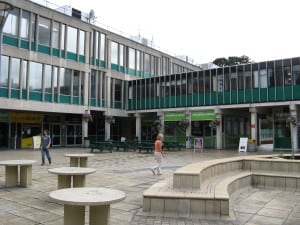William Sherard to Hans Sloane – June 29, 1706
Item info
Date: June 29, 1706 Author: William Sherard Recipient: Hans SloaneLibrary: British Library, London Manuscript: Sloane MS 4040 Folio: ff. 187-188
-
Language
English
-
Library
British Library, London
-
Categories
Collections, Material Culture, Philosophical Transactions, Scholarship, Trade or Commodities, Travel
-
Subjects
Asia, Barometers, Books, Church, Epidemics, Glasses, Jamaica, Maps, Medals, Natural History, Near East, Plague, Plants, Publishing, Seeds, Specimens, Thermometers
-
Date (as written)
June 29, 1706
-
Standardised date
-
Origin (as written)
Smirna
-
Others mentioned
Samuel Doody Leonard Plukenet James Petiver Mr Bridges Mr Bateman Antony Picenini Johann Jakob Scheuchzer Lord Pembroke
-
Patients mentioned
Original Page

Transcription
[fol. 187] Dear Sr. I did not receive yrs of 15th Novr till ye 11th of may by ye King William by whom I send this. I return you hearty thanks for ye trouble about my books, as also for those you sent me, wch were last by ye death of ye purser to whose care they were comitted, only the Transactions were sav’d, for want of convenience of sending them. I have here Lauibaiy Belliantheca, wch I find wants 2 sheets of ye eight vol. I have writ to Vienna after them ye buying it on Mr Bridges acct. if so much money left to me as it cost at Sept, wch woud soon have doubled in this country. I have half a dozen more from Italy, bought at his request, but shall keep them least they may not prove to his liking. I am not sorry to see such a value set on Dr. Cundas’s collection, but am glad you had them not. Dr Scheutzer writes often to me & has sent me most of ye plants he found in his jorneys; he is pretty exact, but not free from mistakes in his names. I have most of my books here & expect ye rest by ye first ships, at least I have sufficient here to imploy me till ye rest come & I loose no time in entering them in my Pinax. Dr Plukenet & Mr Petiver will puzzle me more than all ye rest; but I shall not pretend to adjust their synonyma ’till I return. The plague has been very hot here near six weeks, but ye time of its decreasing is now come, what wth yt & o’r ships being in port. I have not been able to collect any thing this season, but next week will [?] it ye mountains in order to gather some seeds for ye ships in autumn. [fol.187v] last summer I made a jouney to the seven churches of Asia, in Augst & septr. I gather’d severall new seeds, ye season for plants being almost past; but ye greatest fruit of this excursion; was ye visiting Gayra (Aphrodisias of ye axteants) where we copyed near an hundred Greek inscriptions & twice that number in all. I design’d this summer for the Halicarnasso, milato, melazzo & so anlong ye thainr to Calophon but cannot take up a company sufficient to defend us from danger. next year I hope I shall. what inscriptions are dug up here I lay, & shall send home assoon as we have a peace. nothing has made me more uneasy in this country, then the finding my self incapable of serving my Ld Pembroke, as I hap’d & expected to have done. I have neglected no opportunity of buying what medalls presented here & have writ to all ye places where I cou’d fix any corrispondence in order to procure them, & yet after above two years search have met but wth two of his nota. Dr Picanini who is gone for Engld by way of legorn, will wait upon you, & justify what I write. he is in company of Mr. Purnell & Gent’n of their factory, who will be glad to wait on my Ld & shew him what medalls he has pick’d up here, in about 20 years. I have seen them & cannot guess they are worth in any part of Europe, ye quarter they cost here. I can’t pretend any skill my self, but I hereby me most of ye books necessary for ye understanding them; merchts have ye same notion of them yt ye Turks have yt they are all jewells. I writ to you last year for a Barometer, pray lend me one & take the cost of it of my Brother; a Thermometer as a set of glasses for knowing the strength of liquors wou’d be of use to me. Pra Boccona before death sent me his dry’d plants wth a MSS. wch he desird me to get printed, but ’tis not worth ye while ye plants are ye same nam’d in ye inclos’d Catalogue, wch are describd after his way in ye manuscript, wch along farrago of receipts &c. I hear not a word of ye History of Jamaica, pray don’t defer it; ye longer you stay, ye more business will crowd upon you. I have sent over ye last vol. I have of ye Philos. Transactions, wch end 1688 no. 247. & desir’d Mr. Bateman to compleat them & get them bound like ye rest I find in ye Historia literaria maris Balthici, Matth. Hanrici schacht observationes Botanica de plantis circa Cartemundam spontanascenticus. 4. if it be in London, pray send. it I shou’d be glad to know how Dr Raddock proceeds wth his work in folio. whether Dr. Plukunet designs any other volume & what hopes of Mr Doody. My humble service to yr good Lady & family, wth friends at ye club [?] &c. wth great report & good wil [?] I remain Dear sr. yr most faithful & most obliged humble serv’t. WSherard Smirna June 29th 1706. Pray is Parera brava Bouthona ou Mentrocy Brasil. racine diuretique mention’d in ye [?] in use in England?
Sherard (1659-1728) was a botanist and cataloguer. He worked for the Turkish Company at Smyrna where he collected botanical specimens and antiques (D. E. Allen, Sherard, William (16591728), Oxford Dictionary of National Biography).
Patient Details
-
Patient info
Name: N/A
Gender:
Age: -
Description
-
Diagnosis
-
Treatment
Previous Treatment:
Ongoing Treatment:
Response: -
More information
-
Medical problem reference





